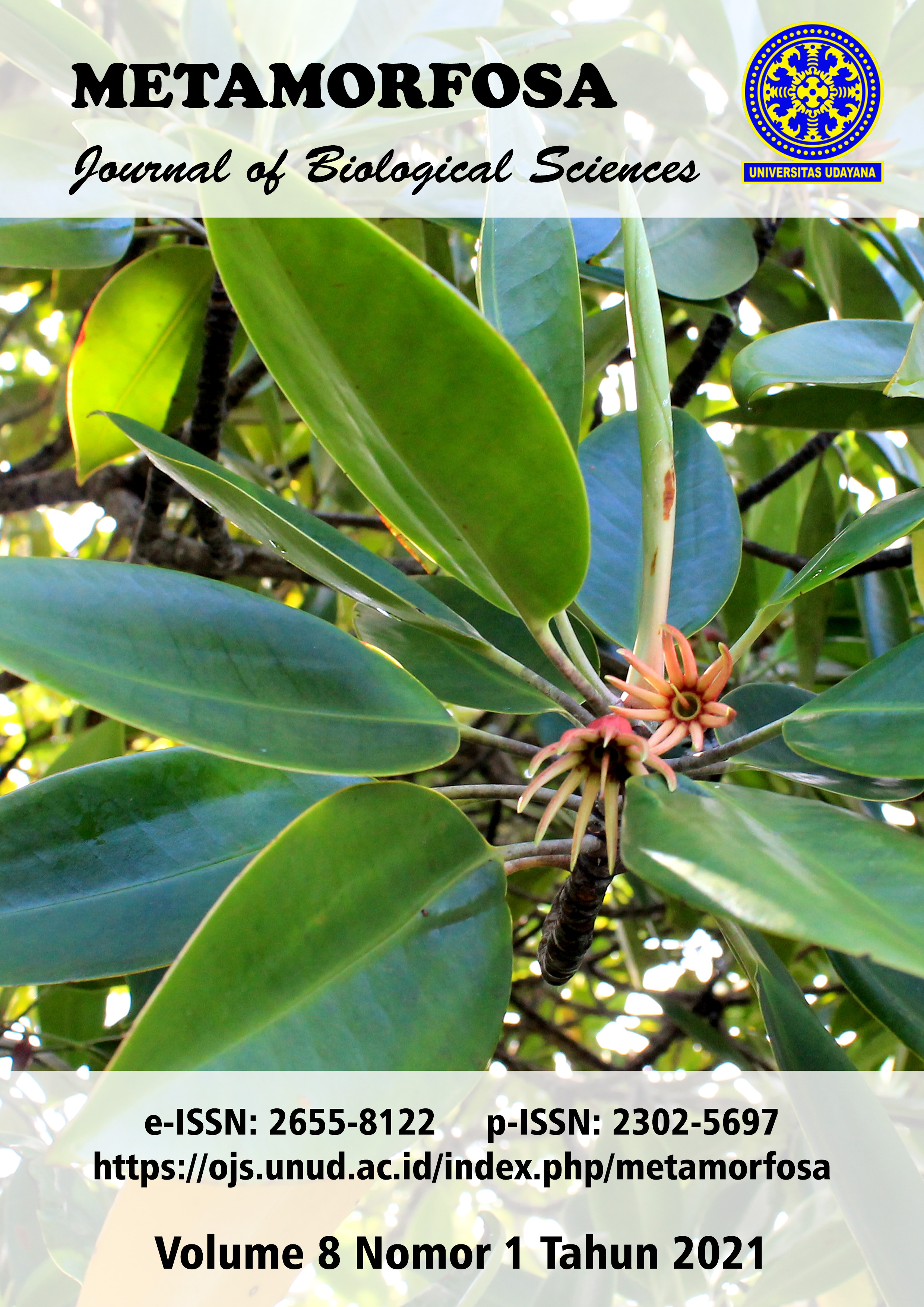Production of Flavonoid On Tomato (Lycopersicon esculentum Mill.) Callus In MS Medium With Variations Of Sucrose Concentration
Abstract
Flavonoids are one of the compounds contained in tomatoes and act as antioxidants. Its production can be increased using callus culture. Factors that influence it is sucrose in media culture. Sucrose can be used as a carbon source and have the ability to increase the production of secondary metabolites. The aim of this research was to examine the effect of sucrose production which can increase the flavonoids from tomato plants. The explants used in the study were cotyledons from the aseptic germinated of the Permata F1 tomato variety. The method used was callus induction in MS media. Pieces of cotyledons from sprouts aged 7 DAP were grown in MS medium with the addition of 1 mg/L NAA and 1 mg/L BAP hormone and sucrose according to treatment for 49 days. The research design used a completely randomized design (CRD) with a single factor, namely 3 treatments of sucrose concentration : 20 g/L, 30 g/L, and 40 g/L with 6 replications. Qualitative and quantitative analyzes of flavonoid content were performed using a UV-vis spectrophotometer. The results showed that the concentration of sucrose had an effect on increasing the content and production of flavonoids in callus tomatoes. The addition of sucrose in MS media resulted in a compact callus texture and the fastest callus initiation time was reached at a concentration of 40 g/L. Sucrose concentration from 20-40 g/L increased the production of flavonoids. Sucrose concentration of 40 g/L is the best treatment to increase the growth and production of tomato callus in vitro.
Keywords : cotyledons, tomato, flavonoids, callus, sucrose





